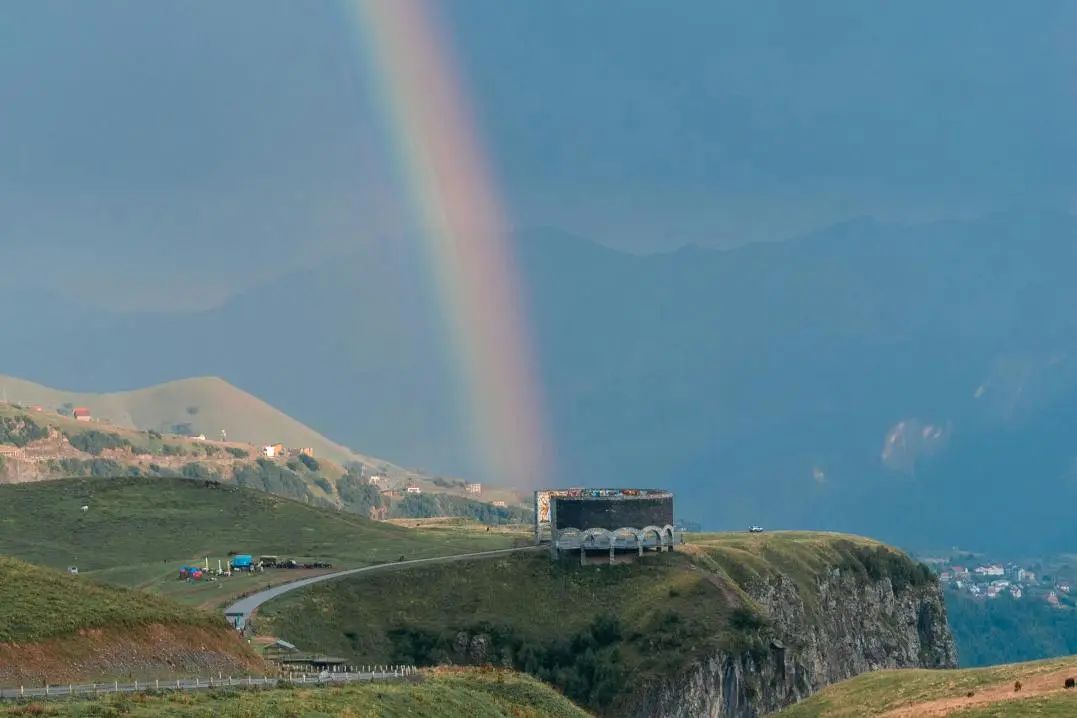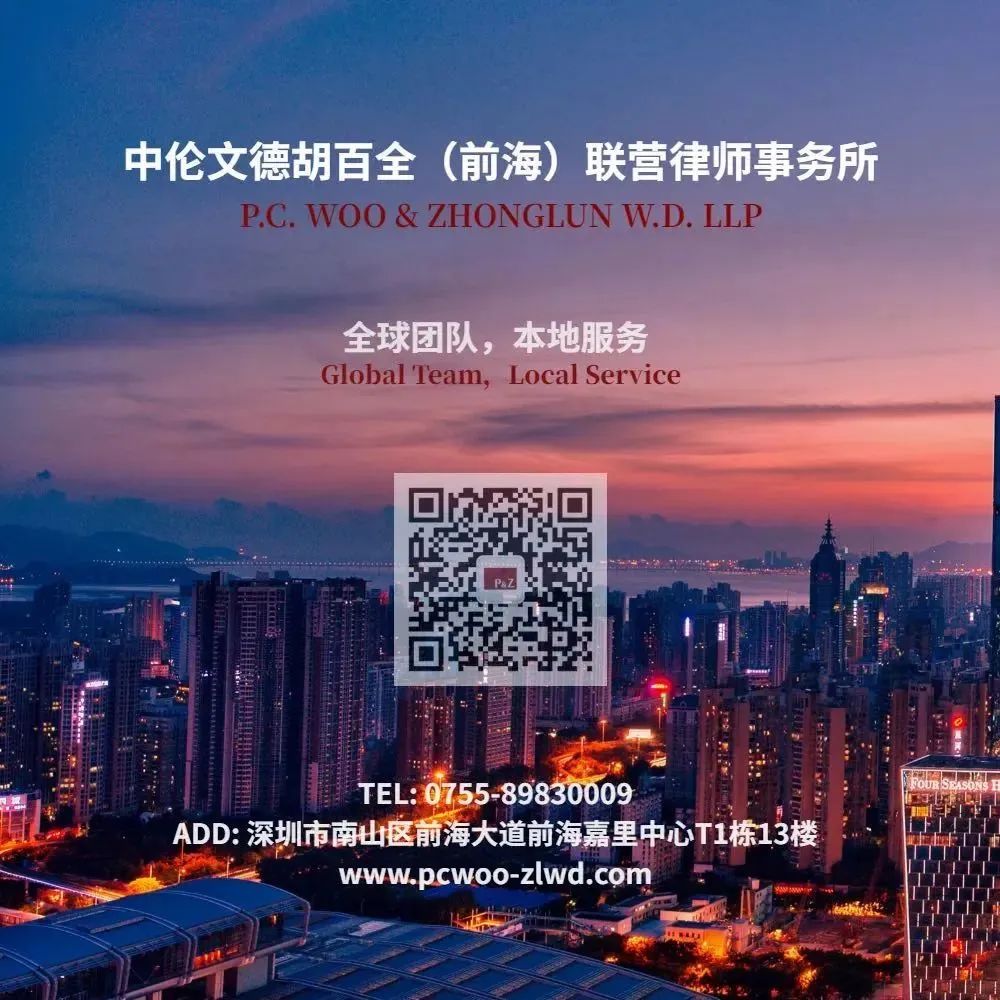
NEWS

NEWS

Shanghai International Economic and Trade Arbitration Commission Cruise Transport Arbitration Center Officially Inaugurated
On July 18, 2024, the Shanghai Baoshan Cruise Legal Cooperation and Development Community was officially established aboard the "Xingluoyang·Gulangyu" cruise ship, with the goal of creating a global center for cruise dispute resolution and enhancing the legal framework for foreign-related cruise operations.
As the dispute resolution mechanism supporting this community, the Shanghai International Economic and Trade Arbitration Commission Cruise Transport Arbitration Center will focus on handling disputes related to cruise transport, ensuring the high-quality operation of the cruise economy, and promoting the long-term development of the cruise industry. With its extensive experience in handling maritime arbitration cases, including multimodal transport contract disputes in international trade, ship and transport equipment supply chain contract disputes, port and terminal infrastructure construction contract disputes, and marine transport insurance disputes, the Shanghai International Economic and Trade Arbitration Commission (SHIAC) is well-equipped to establish and operate the Cruise Transport Arbitration Center.
In the future, the Cruise Transport Arbitration Center will draw on the existing experience of specialized arbitration centers to further enrich its practice, enhance its functions, and expand its influence. This will support Shanghai in seizing the historical opportunity presented by the global restructuring of the cruise industry and in fully supporting Shanghai's goal of becoming an international shipping center.
Regulations of the Shanghai High People's Court on Centralized Jurisdiction over Judicial Cases Involving "Three Specific" Ad Hoc Arbitration and "Foreign Arbitration Business Institutions" Arbitration Effective from June 24
To ensure the effective implementation of the "Shanghai Regulations on Promoting the Construction of an International Commercial Arbitration Center," and to improve the procedural norms and legal consistency in handling new types of arbitration-related judicial cases, the Shanghai High People's Court issued the "Regulations of the Shanghai High People's Court on Centralized Jurisdiction over Judicial Cases Involving 'Three Specific' Ad Hoc Arbitration and 'Foreign Arbitration Business Institutions' Arbitration," which came into effect on June 24, 2024. The full text is as follows:
Article 1 For the purpose of the present Provisions, "Three-Specific" ad hoc arbitration refers to the ad hoc arbitration agreed to be conducted in Shanghai by specific personnel in accordance with specific arbitration rules; and arbitration by "overseas arbitration business agencies" refer to the arbitration conducted by the business bodies of overseas arbitration and dispute resolution agencies established in Shanghai upon registration and record-filing.
Article 2 For the purpose of the present Provisions, "arbitration-related judicial cases" include:
(1) a case of application for confirming the validity of an arbitration agreement;
(2) a case of application for setting aside of an arbitral award;
(3) a case of application for enforcement of an arbitral award;
(4) a case of application to a people's court for preservation in arbitration proceedings; and
(5) a case of application to a people's court for support of evidence collection through investigation in arbitration proceedings.
Article 3 Where a party applies to a people's court in Shanghai for circumstances listed in Articles 1 and 2 hereof, the following courts are designated for jurisdiction:
(1) The Shanghai Financial Court shall have jurisdiction over civil and commercial financial disputes; and
(2) The Shanghai Maritime Court shall have jurisdiction over maritime as well as other civil and commercial disputes.
Exceptions shall be applied to those otherwise specially provided by laws, regulations, judicial interpretations and the Supreme People's Court.
Article 4 Where a people's court at any level in Shanghai finds that there is an arbitration agreement involving the "Three Specific" ad hoc arbitration or arbitration by an "overseas arbitration business body" in accepting and hearing a case, or the party files a competent objection with the court that accepts the case, the court that accepts the case shall review and handle the case.
Article 5 Where enterprises registered in a Pilot Free Trade Zone agree with each other to arbitrate by specific personnel at a specific location in accordance with specific arbitration rules, and the parties file relevant applications with a people's court in Shanghai, the court with jurisdiction shall be determined according to the provisions on "Three Specific" ad hoc arbitrations mutatis mutandis.
"Sino-German Trade and Arbitration International Seminar" Held in Germany
On July 12, 2024, the China International Economic and Trade Arbitration Commission (CIETAC) and the German Institution of Arbitration (DIS) jointly held the "Sino-German Trade and Arbitration International Seminar" (GERMAN-CHINA TRADE & ARBITRATION DAY) in Berlin, Germany, where they also signed an updated cooperation agreement.
At the seminar, Chinese and German arbitration experts conducted in-depth discussions on hot topics in international arbitration such as trade dispute resolution, procedural efficiency, and arbitration awards. As representative arbitration institutions of their respective countries, CIETAC and DIS aimed to promote Sino-German economic and trade cooperation through this meeting. During the event, CIETAC and DIS signed an updated cooperation agreement to further strengthen cooperation in promoting arbitration systems, hosting events, recommending arbitrators to each other, and conducting research, thereby fostering the development of international arbitration and promoting Sino-German and international economic and trade cooperation. Participants widely agreed that the seminar contributed to a better understanding of the arbitration legal systems of China and Germany, enhanced legal exchanges and cooperation between the two countries, and had positive implications for the stable development of international trade and economics.
Urumqi Intermediate People's Court: The Arbitration Institution Was Clear and Unique at the Time of Agreement
Legal Basis:
"The Arbitration Law of the People's Republic of China"
Article 16
An arbitration agreement shall include arbitral clauses stipulated in the contract and other written agreements which request arbitration to be made prior to or following the occurrence of a dispute.
An arbitration agreement shall include the following:
(1) the expression of an application for arbitration;
(2) items for arbitration;
(3) the chosen arbitration commission.
Article 17
An arbitration agreement shall be deemed invalid in any of the following circumstances:
(1) items provided for arbitration exceed the legally regulated scope of arbitration;
(2) the arbitration agreement has been concluded by persons without civil capacity or with limited civil capacity;
(3) one party has forced conclusion of the arbitration agreement through coercive means.
Case Description:
Tianjin Lu Some Co., Ltd. (hereinafter referred to as “Tianjin Lu Some”) and Urumqi Sheng Some Co., Ltd. (hereinafter referred to as “Sheng Some”) are in dispute over the arbitration clause in the "National Road 216 Upgrading and Renovation (East Second Ring) Pipeline Relocation Project Section III Construction Contract." Tianjin Lu Some requests the court to confirm the invalidity of the arbitration clause in the contract, arguing that the clause is unclear. Sheng Some agrees to confirm the arbitration clause's invalidity.
Court's View:
The court holds that Article 16, Paragraph 2 of the Arbitration Law of the People's Republic of China stipulates that an arbitration agreement must include: (1) the intent to request arbitration; (2) the matters to be arbitrated; and (3) the chosen arbitration institution. In this case, the "National Road 216 Upgrading and Renovation (East Second Ring) Pipeline Relocation Project Section III Construction Contract" specifies that disputes arising from the contract will be resolved by arbitration at the project location's arbitration committee. The contract and the supplementary agreement both clearly state that disputes will be resolved by the arbitration committee at the project location in Urumqi. At the time of the contract and supplementary agreement signing in 2016 and 2019, there was only one independent arbitration institution in Urumqi, namely the Urumqi Arbitration Commission. Therefore, the agreed arbitration institution was clear and unique. Tianjin Lu Some's claim that there were two arbitration institutions in Xinjiang at the time of contract signing does not align with the actual situation at that time and is not accepted by the court.
Furthermore, according to Article 17 of the Arbitration Law of the People's Republic of China, an arbitration agreement is invalid under the following conditions: (1) the arbitration matters exceed the legal scope of arbitration; (2) the agreement was made by someone with no or limited civil capacity; or (3) one party was coerced into agreeing to arbitration. Tianjin Lu Some has not provided evidence proving that the arbitration agreement in question meets any of these invalidation criteria. Therefore, Tianjin Lu Some's claim of the arbitration agreement's invalidity does not conform to the provisions of the Arbitration Law and is not supported by the court.
In conclusion, in accordance with Articles 16 and 20 of the Arbitration Law of the People's Republic of China, the court rules to dismiss Tianjin Lu Some's application.
Singapore High Court:
Extension of Arbitration Clause to Sales Agreement, Denial of Application to Set Aside Award and Approval of Permanent Anti-Suit Injunction
Case Description:
Pertamina International Marketing & Distribution Pte Ltd (hereinafter referred to as "PIMD") is one of Southeast Asia's largest vendors of petroleum products and can provide reliable petroleum product supplies to P-H-O-E-N-I-X Petroleum Philippines, Inc (also known as Phoenix Petroleum Philippines, Inc) (hereinafter referred to as "Phoenix"). Phoenix is highly active in the oil fuel and liquefied petroleum gas market in the Philippines and has a strong demand for petroleum products. The parties signed a Memorandum of Understanding (MoU) as a framework agreement for subsequent sales agreements, with the MoU stipulating arbitration at the Singapore International Arbitration Centre.
From November 2019 to June 2021, PIMD obtained sales agreements for 26 batches of petroleum products through Phoenix’s tender process and completed delivery. However, the sales agreements did not specify the governing law or dispute resolution clauses. As Phoenix failed to make payments as agreed, PIMD initiated arbitration at the Singapore International Arbitration Centre. During the arbitration process, Phoenix raised a jurisdictional objection and ceased participating. The arbitral tribunal issued an award in Phoenix’s absence, holding Phoenix and the third-party guarantor, Udenna Corporation (hereinafter referred to as "Udenna"), jointly liable for PIMD’s claims.
On December 2, 2023, Phoenix filed a lawsuit in the Regional Trial Court of the 11th Judicial District of the Philippines (hereinafter referred to as "Philippine Court"), requesting the court to declare the arbitral award invalid and issue a permanent injunction to prevent PIMD and Udenna from enforcing the award. Phoenix also sought a preliminary injunction to prevent PIMD and Udenna from enforcing the award pending the court's decision.
On December 12, 2023, PIMD applied to the Singapore High Court (hereinafter referred to as "the Court") to enforce the award and was granted permission (hereinafter referred to as "ORC 69"). On January 12, 2024, PIMD also applied for a permanent anti-suit injunction (hereinafter referred to as "OA 1") and a preliminary anti-suit injunction, which was granted, but Phoenix did not suspend its litigation in the Philippines. On May 13, 2024, Phoenix applied to the Singapore High Court to set aside ORC 69 (hereinafter referred to as "SUM 21").
Court's View:
Regarding the dispute over SUM 21, the Court noted that under Section 3(1) of Singapore's International Arbitration Act (IAA) of 1994, the model law has legal effect in Singapore. Phoenix argued under Article 19 of the IAA that the Court has discretion on whether to enforce the award. The Court agreed and exercised its discretion under Article 36(1) of the model law. However, Article 19 of the IAA also states that even in the presence of conditions under Article 36(1) of the model law, the Court still has the discretion to refuse enforcement. PIMD argued that Phoenix was precluded from raising SUM 21 under the principle of res judicata or estoppel due to a prior ruling ([2024] SGHC(I)13). The Court held that since the judgment did not address the existence of the relevant arbitration agreement or whether the Court should recognize or refuse to recognize and enforce the award, the principles of res judicata or estoppel do not apply to SUM 21. Although the sales agreements did not specify dispute resolution clauses, the MoU, which serves as the framework agreement, detailed the dispute resolution clauses. The Court considered that the arbitration clause in the MoU should be interpreted broadly and expansively to cover disputes under the sales agreements. Additionally, although Phoenix argued that each sales agreement was a separate agreement, the Court found that the agreements were made under the MoU framework and thus bound by its arbitration clause. The Court disagreed with Phoenix’s claim that the arbitration award exceeded the scope of the arbitration clause and rejected SUM 21.
Regarding the dispute over OA 1, the Court found that under Article 34(3) of the model law, the award is final, effective, and binding since Phoenix did not apply to set aside the award within the 3-month period. Phoenix argued that the Court lacked the authority to grant a permanent anti-suit injunction, but the Court ruled that the case involved international commercial arbitration and thus had jurisdiction and the power of the High Court to grant appropriate relief, including a permanent anti-suit injunction. Phoenix contended that its litigation in the Philippines was defensive and only had effect within the Philippines, with the Philippine court being the proper venue to assess its appropriateness. The Court held that Phoenix’s litigation in the Philippines was not only an attempt to resist enforcement but also sought to declare the arbitration and its award invalid, which contravened Article 34 of the model law and was therefore unacceptable under Singapore law.
In summary, the Singapore High Court ruled to deny SUM 21 and granted PIMD's application for a permanent anti-suit injunction.

